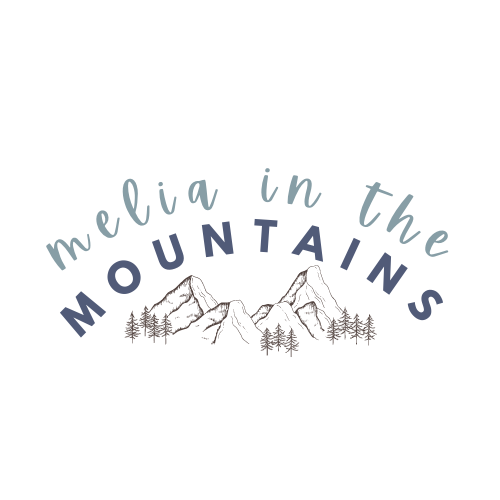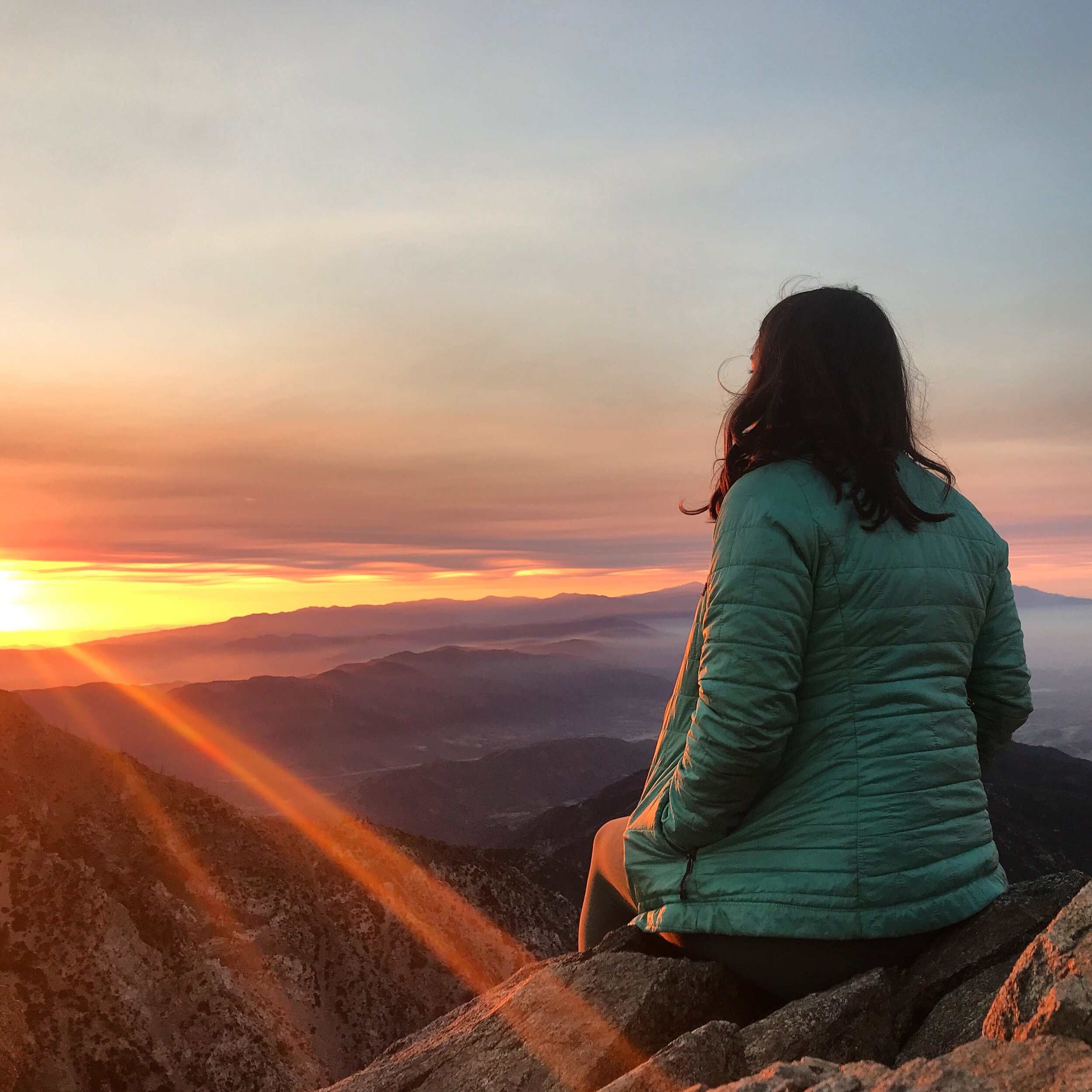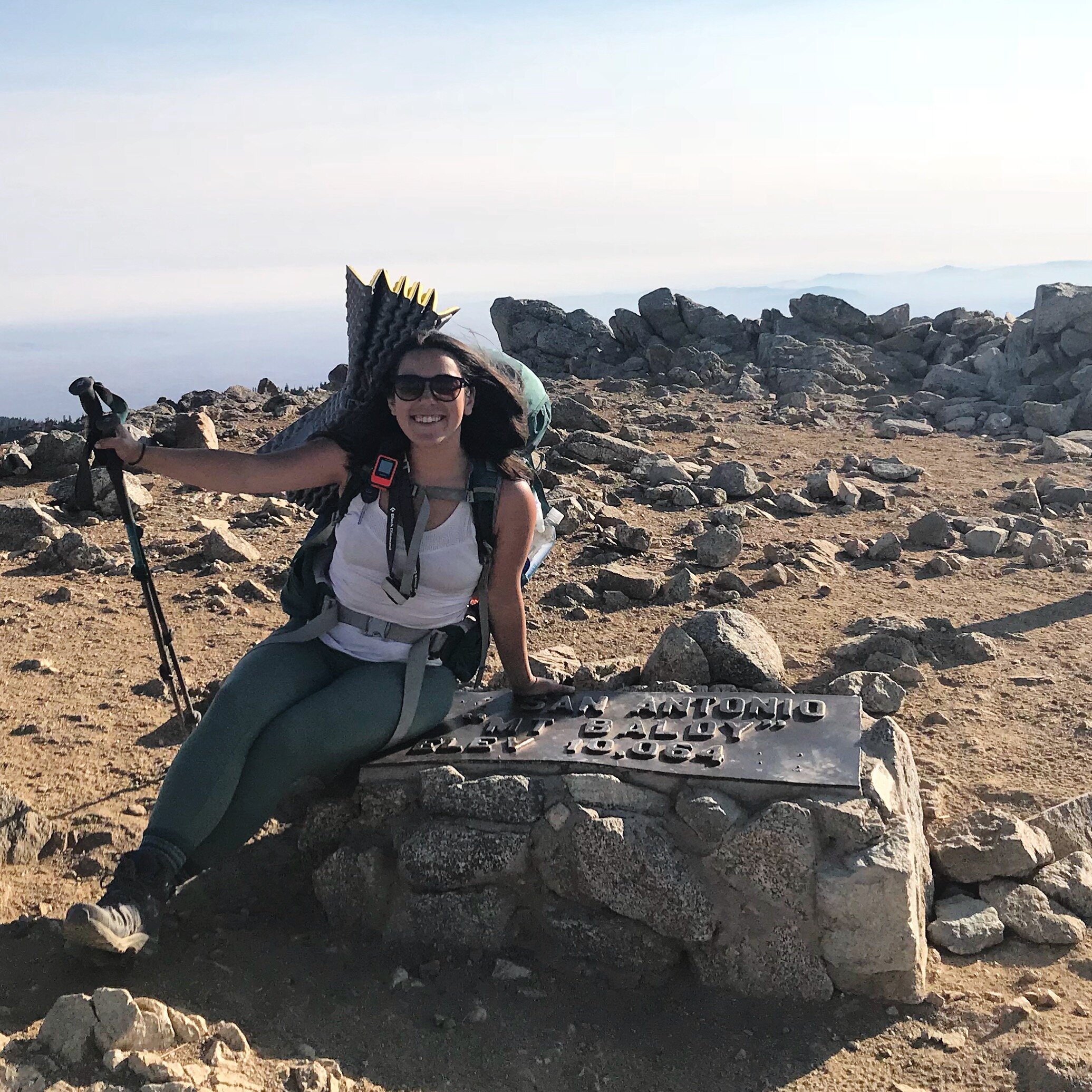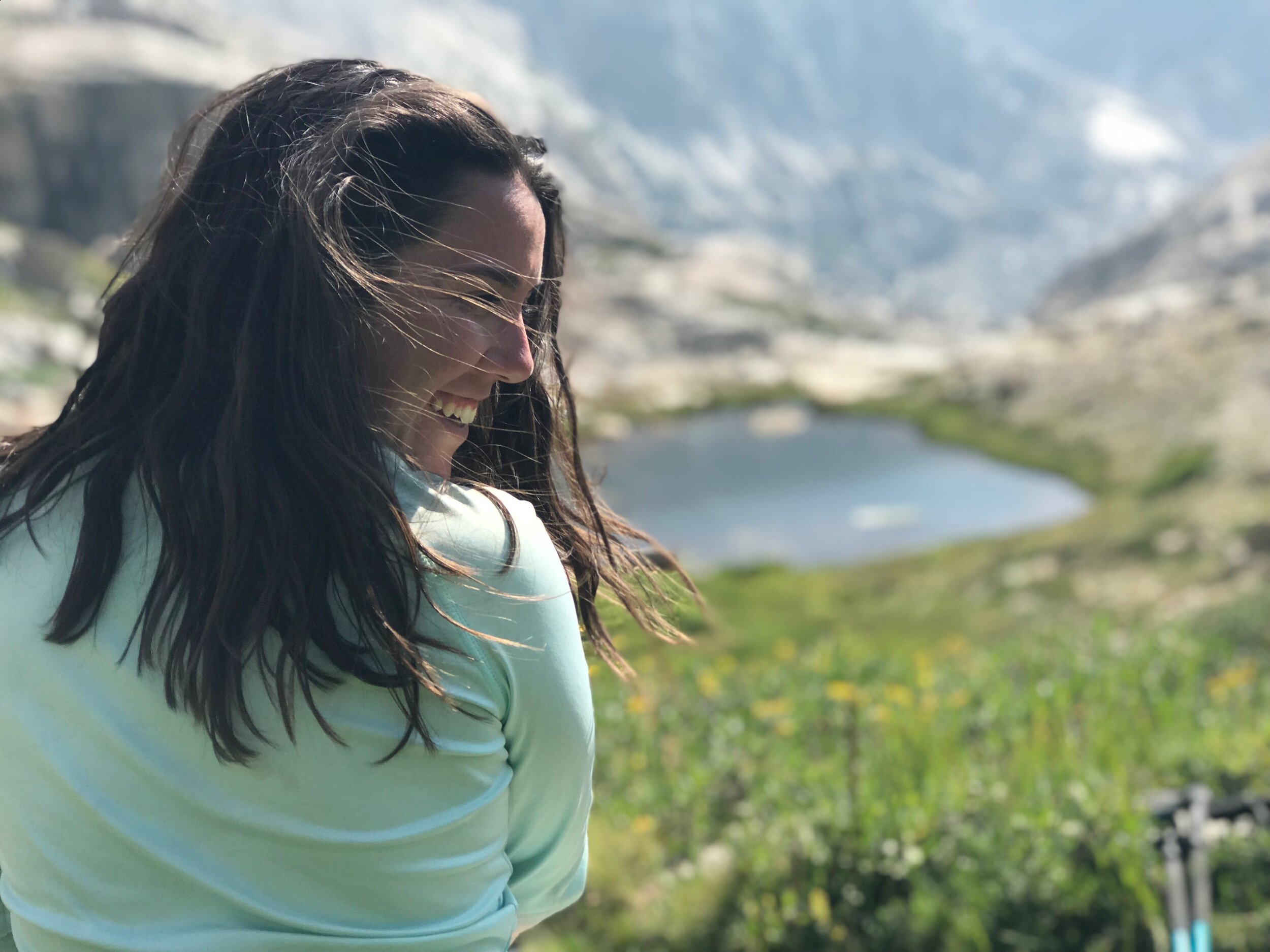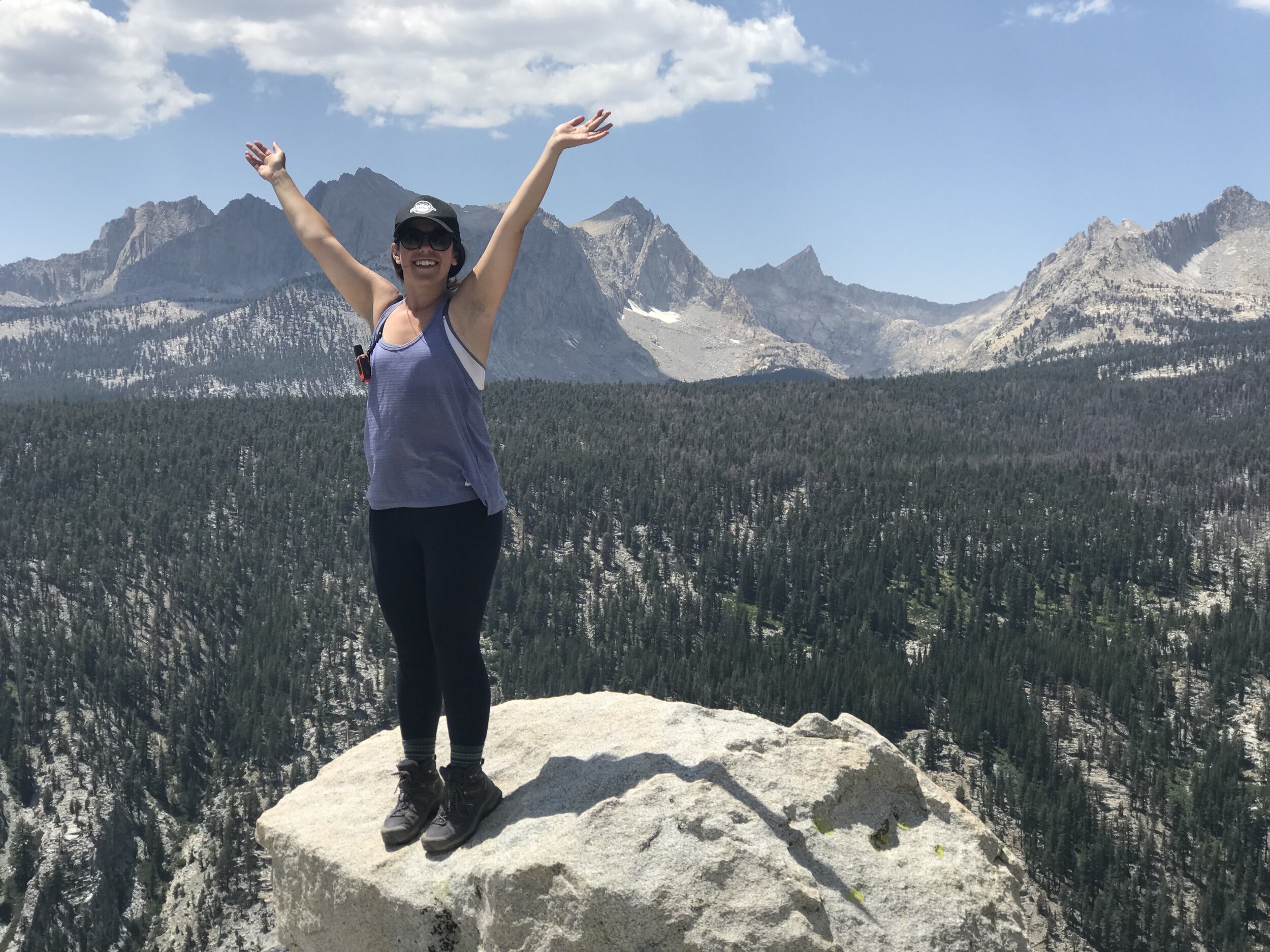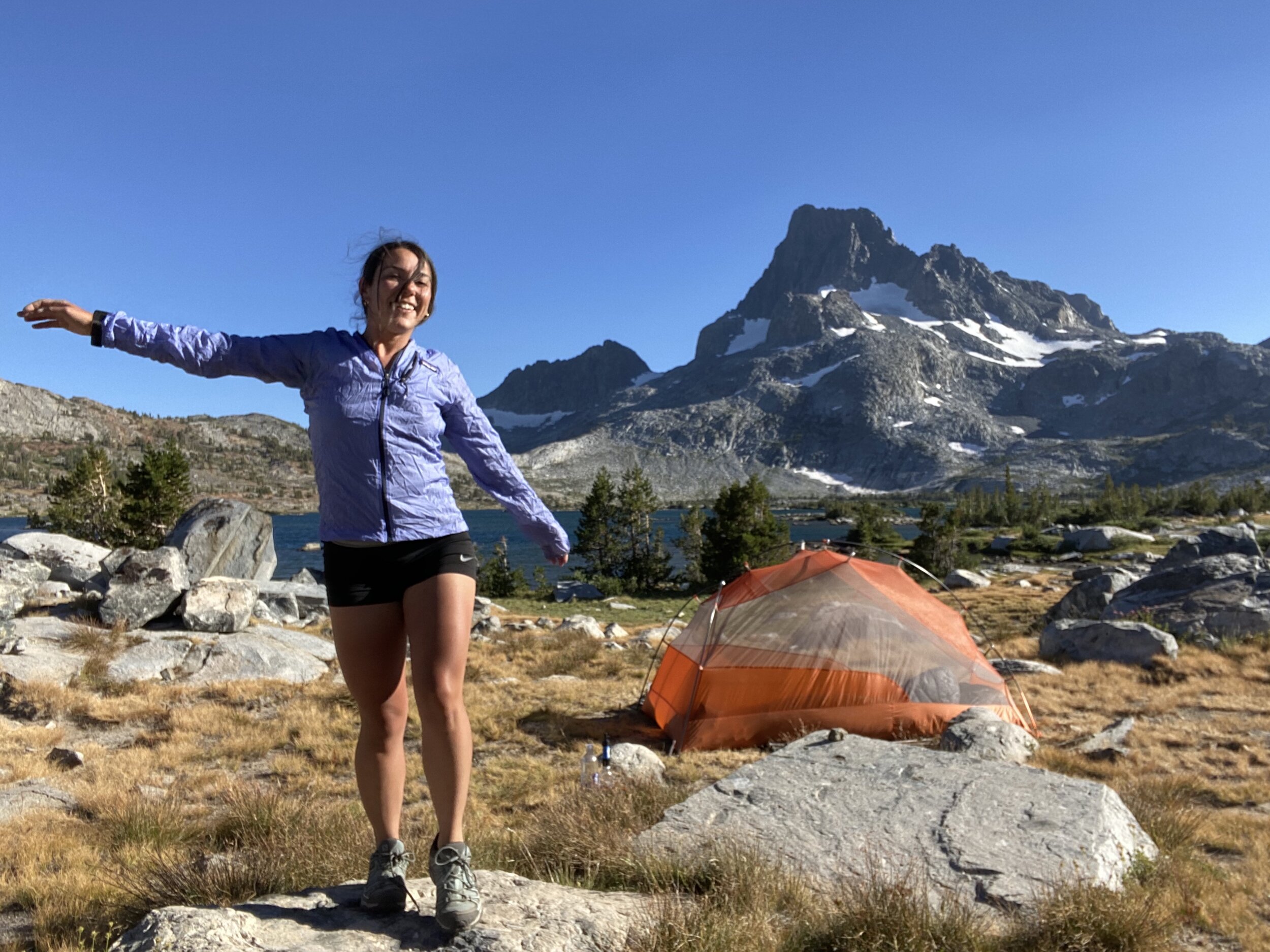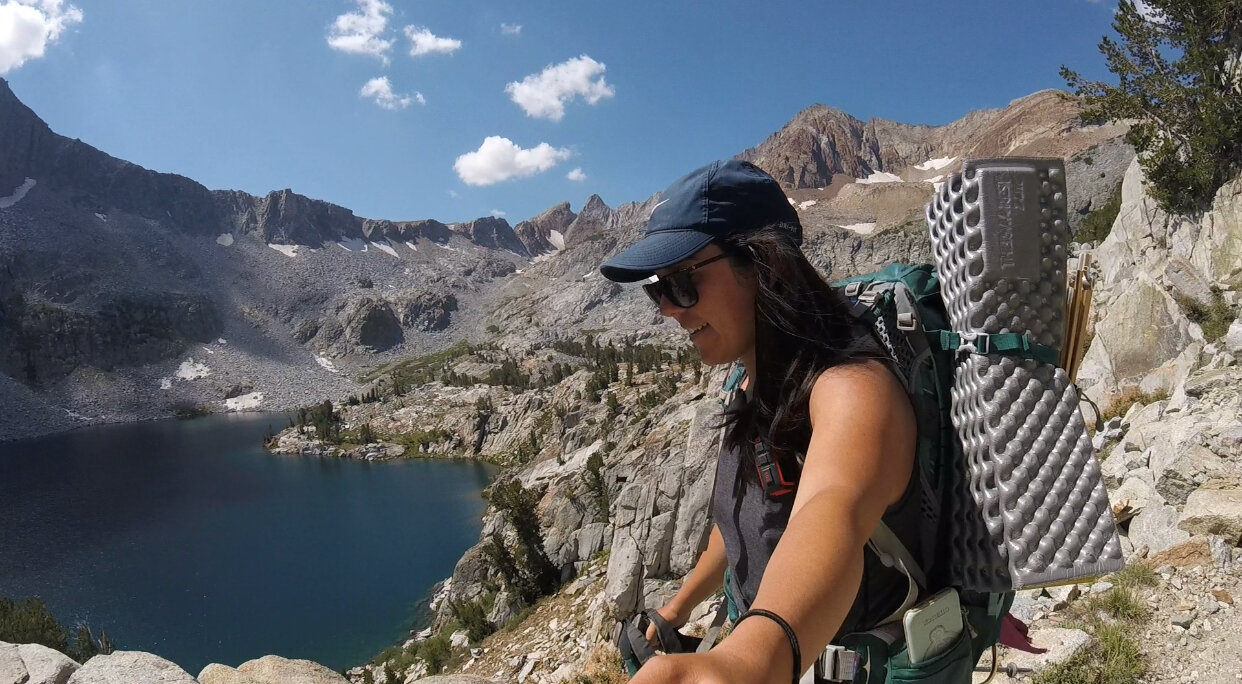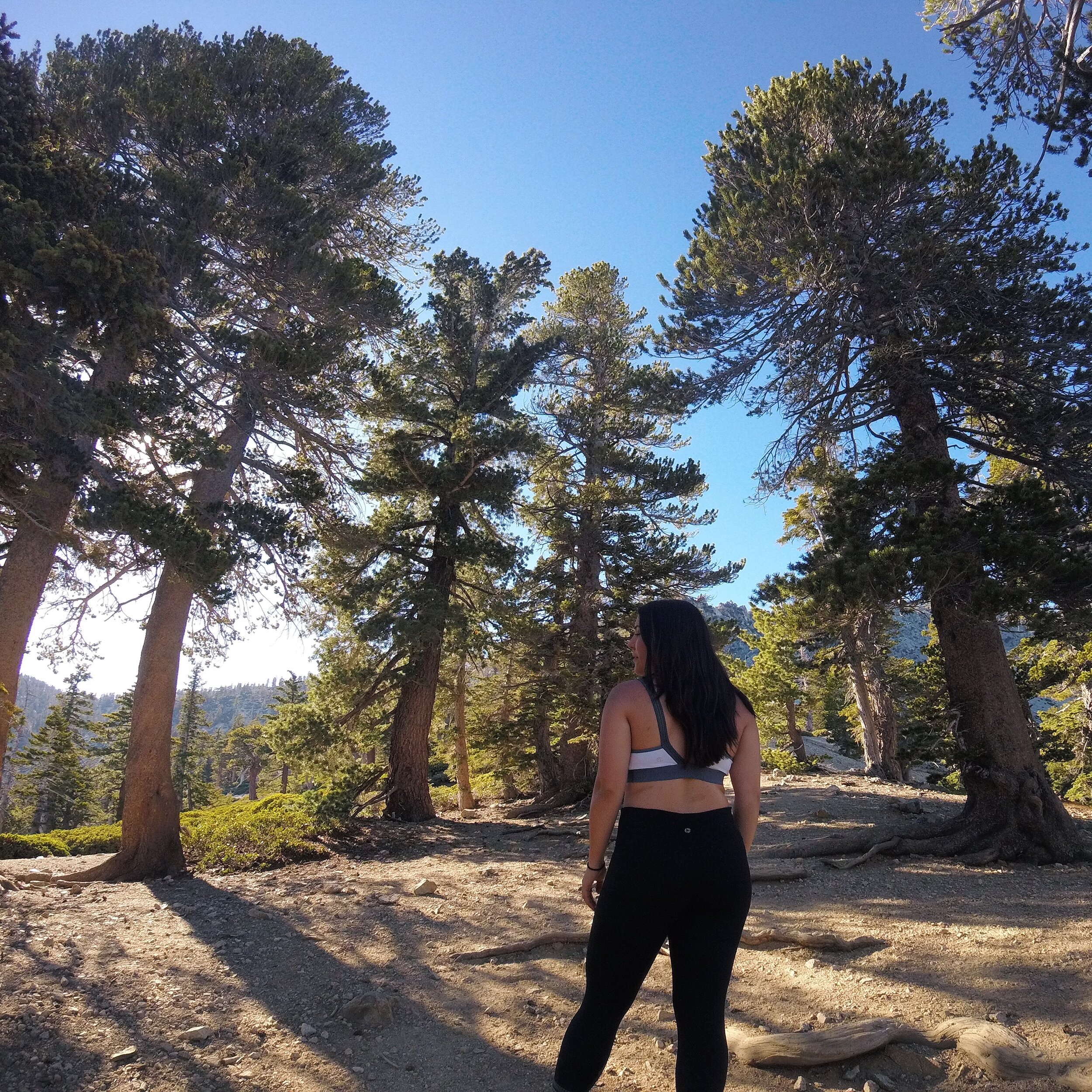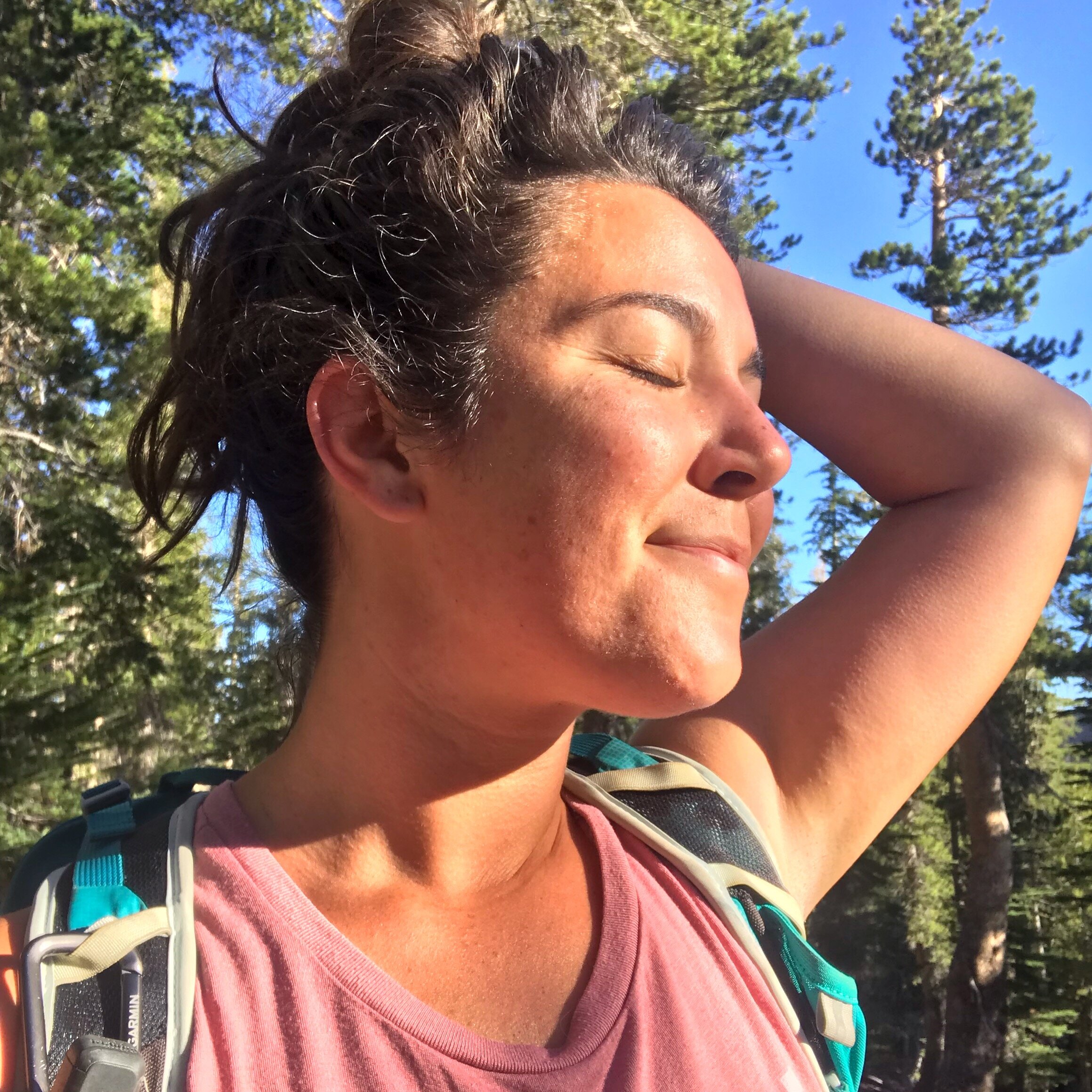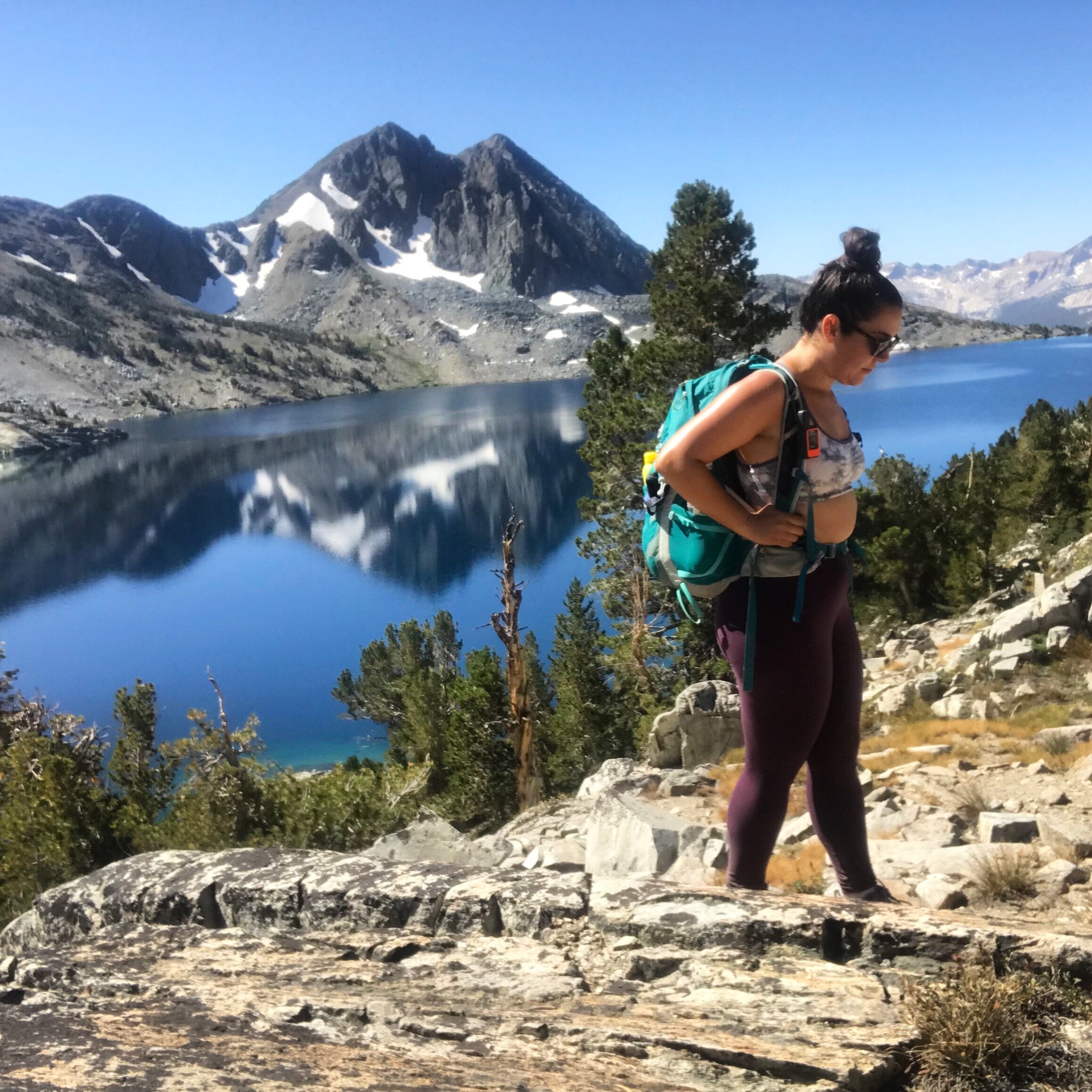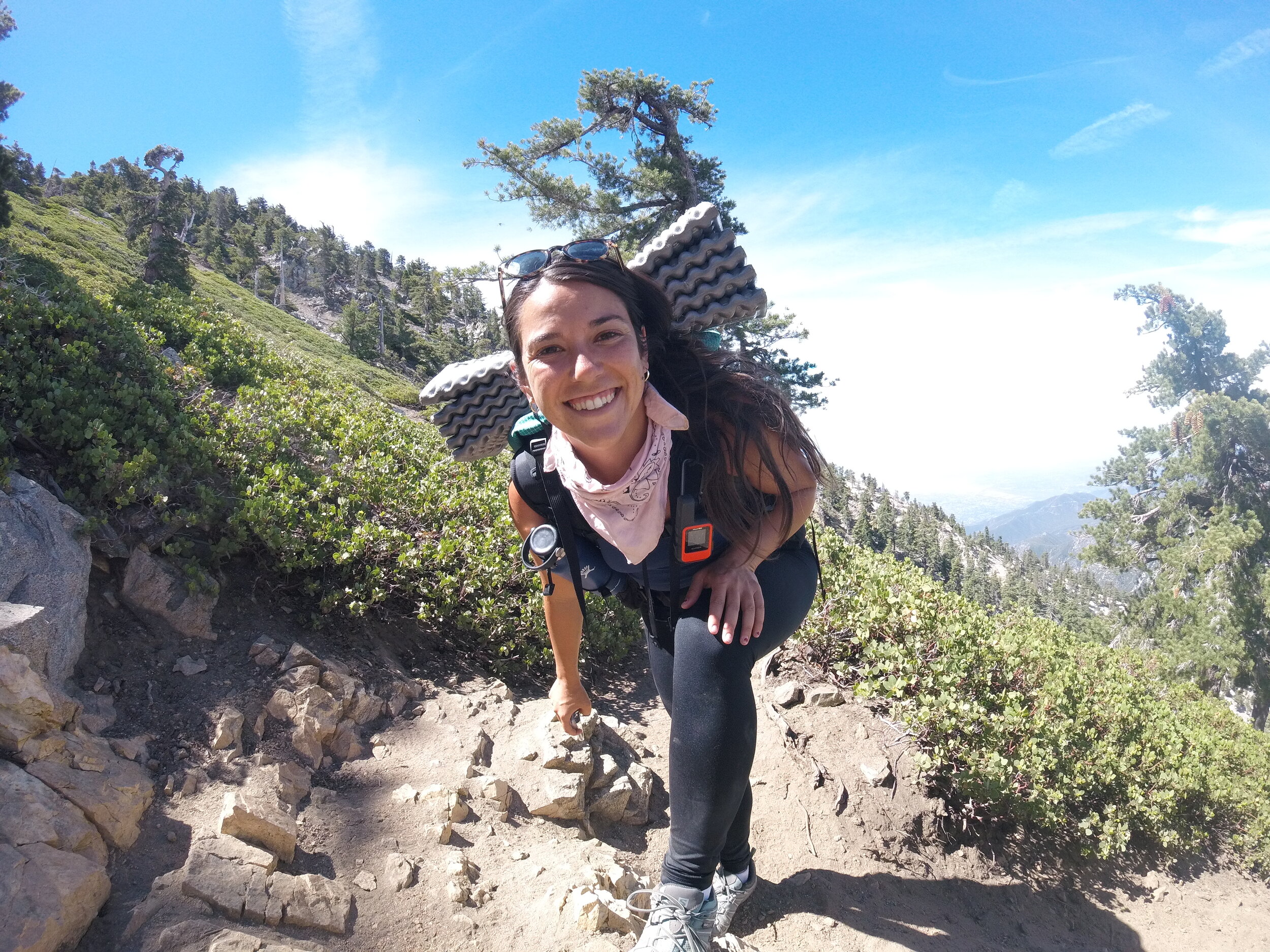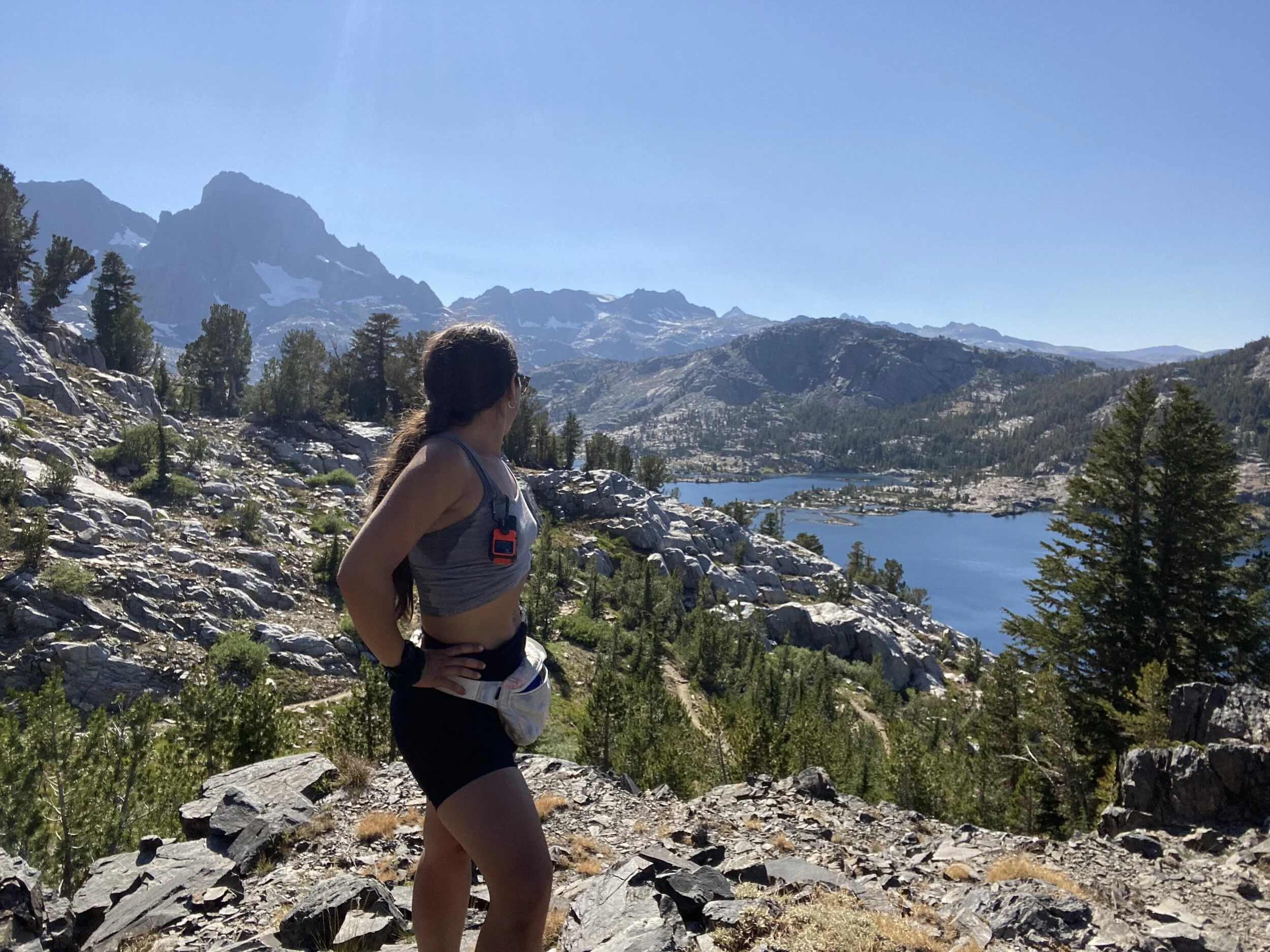Seven Things That Make Me Feel Empowered As A Solo Female Hiker
“Don’t go out into the wilderness solo.” “It isn’t safe out there.” “But you’re so small... how could you ever protect yourself?” “What if you fell off the trail? Who’s going to save you?” “What if you see a bear?! Or a mountain lion?!” “I hope you carry a gun.” “Who’s going to protect you” “Women just shouldn’t be doing stuff like that...” “Is your boyfriend seriously okay with you going out there by yourself?”
To be a female solo adventurer is to challenge the dominate narrative given to women. You’re going to receive pushback. People are going to question you and your abilities. People will make assumptions. They will try to convince you it’s too dangerous, you’re too small, and that you need to be protected.
But when they tell you that you can’t, I encourage you to do it anyway. You deserve the freedom, you deserve to bathe in your own self love and sunshine, you deserve the solitude, you deserve to see the places you’ve always wanted to. You don’t need to wait until someone else decides they’re ready- you can go alone and you can be damn happy about it.
You also deserve to feel empowered while you’re doing it.
In the last few years, I’ve solo hiked and backpacked hundreds of miles. The most common question I get is, “how do you feel confident hiking alone?”.
So in this blog post, you’ll learn seven things I do that make me feel empowered as a solo female hiker.
1. I carry a Garmin Device.
This is probably the #1 thing I would recommend to anyone interested in solo traveling, hiking, adventuring, or backpacking. The GPS/Satellite phone enables me to navigate and download maps of my intended trip, check the weather, stay connected with loved ones via a satellite messenger system, and trigger an SOS in an emergency situation. My family back home can also track my location with a live online map.
I have the Garmin Inreach Mini. It retails at $350, and you have to have a minimum $15/month subscription.
2. I took a Wilderness First Aid course.
One of the biggest concerns with hiking is the fact that you’re away from immediate medical attention. When I first started hiking, I was afraid of getting into an emergency medical situation without any help. A Wilderness First Aid course empowered me to learn more about what to do if an emergency were to happen on trail, and taught me wilderness first aid and emergency survival techniques. If you’re spending a lot of time outside, by yourself or with others, I highly recommend looking into one of these courses.
3. I do my research, carry the proper gear, plan my route, and check the weather.
Before I hike any trail solo, I do a lot to make sure I’m prepared. If you’re first starting off solo hiking, I highly recommend doing trails you’re already familiar with.
No matter if I’m hiking a brand new trail or one I’ve done a million times, I do general research of the trail to ensure I know the mileage and elevation gain of the hike. I also download a GPS map and look at it before hand. I also read a few trail reports on blogs, Instagram, in Facebook groups, or AllTrails. I always carry my 10 essentials and emergency gear. Click here for a day hiking checklist. Finally, before any hike, I always check the weather and I don’t hike in dangerous conditions. I also have a turn around time. This means that at that set time, regardless of where I am on trail, I will turn around.
4. I always tell someone my plan.
I created this form to fill out before any trip. It includes important details to help someone find me if something were to go wrong when I’m out there. The details on this sheet are coordinated with what search and rescue teams always ask if someone were to call in for help.
I always print two copies of this info sheet. I leave one at home with someone I trust and I leave one under the seat of my car. While my planning and preparation makes me feel confident, this extra step can help a lot in the event that something were to go wrong.
5. I listen to my instincts and trust my gut.
A big part of empowerment for me is trusting my ability, myself, and my intuition. This comes in two forms when solo traveling: my physical abilities and my intuition with people I interact with.
Sometimes while solo hiking, or during a solo adventure, I’ve gotten a bad feeling. Part of being empowered in my solo adventures is listening to myself and trusting myself. For me, it means listening to my body and honoring what it’s saying to me. It also means trusting myself when it comes to my abilities, my limitations, and my comfort.
I turn around if I want to. I’ll change my plans if I’m uncomfortable. I’ve come home early. I’ve completely cancelled. I never beat myself up for not finishing a hike or doing something I don’t feel comfortable doing.
When it comes to interacting with other people, I’ve mostly had great experiences. But, when I’m out there, I also trust myself and my best judgement. I don’t engage with people if they make me feel uncomfortable. When solo hiking, I remember I have control over the information I share. I rarely tell people I’m hiking, backpacking, or camping by myself or where I’m planning to spend the night. If I’m set up for camp for the night and someone makes me uncomfortable, I’ve absolutely packed up my shit and moved.
6. I follow and learn from Nicole of Outdoor Defense.
Nicole Snell is a self-defense expert, the founder of Outdoor Defense, CEO of Girls Fight Back, hike lead with Black Girls Trekkin’, and she’s an avid solo hiker. Nicole takes a very pragmatic and empowering approach to solo hiking and self-defense. Her conversations, guides, and tutorials balance the legitimization of the fears and threats women face while solo adventuring, while empowering you to take your safety into your own hands. In listening and learning from her, I’ve felt a lot more empowered on my solo adventures.
You can check out her outdoor defense series on Youtube by clicking here. You can also get tips, tricks, and inspiration by following her on Instagram. Finally, I highly recommend listening to this episode of She Explores featuring Nicole.
7. I separate socially constructed fear from legitimate fears.
A lot of people discourage women from traveling alone because of socially constructed definitions of gender ideals. It’s less about the legitimate question of safety and more about utilizing fear as a mechanism of control.
Now, I’m not delegitimatizing that there are fears and risks associated with being a woman traveling alone. But I feel empowered when I balance the awareness of those risks with facts.
So for example— it’s an accurate statement that women experience high rates of sexual assault. But, the risk of being assaulted by someone you know is significantly higher than the risk of being randomly assaulted by a stranger while out adventuring. I guess what I’m saying is— it isn’t inherently more risky to be out there adventuring alone.
I think it’s important to remember: you can never completely eliminate the risk of anything, but you can do a lot to mitigate your risks. And that’s where a lot of my empowerment comes from.
If you have any questions about solo hiking, please leave me a comment! If you hike solo, leave a comment with something you do that makes you feel empowered while out on the trails alone.
